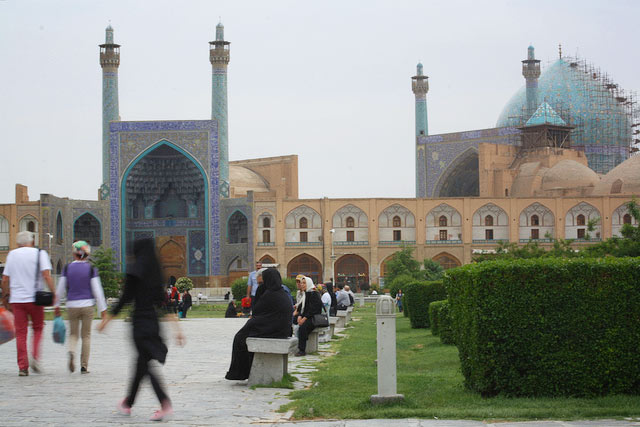
Is Iran on a path towards more progressive laws? Some interesting developments out of the country are showing that a demand for popular power is growing. Support for political inclusion, via referendums voted on by the people, might have the potential to shift power within the country. However, to understand why these ideas are an advancement, let’s take a quick look at the Iranian political system.
For the most part, Iranian politics seem similar to most political systems found around the world. There is a President who is elected along with members of parliament who create and vote on laws. But there’s a second layer to the Iranian government. This lies in the Supreme Leader Ayatollah Ali Khamenei, who is in charge of the army and creating policies and trends within the country.
It’s a hard job and he simply cannot do it alone, so instead the Ayatollah appoints the Council of Guardians to oversee Parliament and help steer the country in the direction he sees fit. As you can imagine, with such control over the Parliamentary systems, there isn’t much room for dissent.
Yet recently the elected President of Iran, Hassan Rouhani, has called for referendums to be introduced into the country. Speaking at a conference, he was quoted as saying, “It will be good to, after 36 years, even for once, or even every 10 years if we implement this principle of the Constitution, and put important economic, social and cultural issues to a direct referendum instead of to the Parliament.”
Since Iranian youth and culture has liberalized considerably in the past few years, this sets a dangerous paradigm for members of Parliament and the Ayatollah to consider. The cultural divide in Iran between those under 30 and those who went through the 1979 revolution is considerable. Sources close to the government dismissed the idea as a distraction, telling reporters the president was underestimating the difficulty of organizing a referendum.
President Rouhani also made headlines last year when he banned the morality police (yes that really is a thing there) from arresting women for being ‘inappropriately dressed.’
Yet it does seem that the Council of Guardians is listening to the general public after they struck down a strict new law that made its way through Parliament. Dubbed the “Plan on Protection of Promoters of Virtue and Vice,” the law would have clamped down on recent gains made by Iranian women. For instance, it authorized verbal warnings to be given out to women who didn’t meet dress codes. Employers would also be held responsible for ensuring their female employees came to work dressed appropriately. Companies that didn’t enforce dress codes would have been subject to fines.
Dress codes have relaxed considerably inside the country. Where once women were expected to wear loose, black chadors, these days women can often be seen in skinny jeans, tight jackets and hijabs (headscarves) worn far back on their heads. Men’s fashion has also undergone a shift, with a rise in contemporary western styles.
In 2009, the Green Revolution shook Iran as thousands of youth activists took to the streets and demanded change from the strict regime. While the moderate nature of their new president has given many a hope that they can change government from within, many still worry that as long as there’s a religious council dictating life, moving forward will be a struggle.
Join us in defending the truth before it’s too late
The future of independent journalism is uncertain, and the consequences of losing it are too grave to ignore. To ensure Truthout remains safe, strong, and free, we need to raise $43,000 in the next 6 days. Every dollar raised goes directly toward the costs of producing news you can trust.
Please give what you can — because by supporting us with a tax-deductible donation, you’re not just preserving a source of news, you’re helping to safeguard what’s left of our democracy.